WASHINGTON — America’s partners around the world are mostly relieved that the end of Donald Trump‘s chaotic presidency is near, but they harbor lingering doubts about Washington’s reliability and are wary of the country’s polarized politics even under new leadership, former foreign and U.S. diplomats say.
“There’s a feeling that if it can happen once, it can happen again,” said James Bindenagel, a retired career U.S. diplomat who is a senior professor at Bonn University in Germany.
Although governments in Europe and Asia in particular are reassured by President-elect Joe Biden‘s experience on the world stage and his vow to shore up U.S. alliances, their confidence in America’s ability to deliver on its commitments has been deeply shaken, and Trump’s departure won’t automatically restore their faith, former diplomats said.
Trump’s imposition of tariffs and his talk of abandoning the NATO alliance, the foundation of trans-Atlantic ties, stunned Europeans. In talking to German officials, Bindenagel said the question he hears again and again is: “Can we trust the Americans?”
As a result, Biden will have to do more than merely voice support for NATO and trans-Atlantic cooperation, Bindenagel said.
“The question becomes: Can we re-establish trust? You can’t do that overnight, and you can’t do it with a declaration. You have to prove it,” he said.
Bindenagel said one way to begin to restore trust with European allies would be for Biden to reverse Trump’s decision this year to withdraw 10,000 U.S. troops from Germany, a move that blindsided Berlin. Biden’s team has said he will review the decision.
Doubts about America’s staying power predate Trump. Foreign ministries now see protectionist, populist currents as permanent features of the U.S. political landscape, with Americans increasingly questioning alliance arrangements, troop commitments and the benefits of global trade. According to a 2019 Pew Research Center survey, 46 percent of Americans said “we should pay less attention to problems overseas and concentrate more on problems here at home.”
When Trump lost the presidential election, “you could hear the biggest sigh of relief in human history,” said Kishore Mahbubani, Singapore’s former ambassador to the United Nations and dean of the Lee Kuan Yew School of Public Policy at the National University of Singapore.
But governments in Asia know that it’s not possible to turn the clock back and that a deeply divided America can’t guarantee that a deal reached today will still hold in four years when another president might take over, Mahbubani said.
“That’s the problem. That’s why people will hedge their bets,” he said. “There’s a very high possibility that he [Trump] will get in again.”
Mahbubani also said American’s struggle to contain the coronavirus has dented the country’s image, making it look inept and incapable of managing its problems. Trump’s refusal to concede defeat has also reinforced doubts about America’s political health.
Mindful of China’s growing power, Southeast Asian countries would like Washington to rejoin the Trans-Pacific Partnership, the regional trade pact that was brokered by President Barack Obama and was promptly dumped by Trump in 2017. But they recognize that’s unlikely given opposition to the trade deal in the U.S. on both the left and the right, Mahbubani said.
Margot Wallström, Sweden’s former foreign minister, said Biden will be widely welcomed in foreign capitals as a familiar figure who will work in cooperation with other countries on climate and other common threats.
“We can relax a bit in Europe and the rest of the world, because this is a person we can talk to. And everything starts with that in diplomacy and in the multilateral context,” said Wallström, who was Sweden’s top diplomat from 2014 to 2019.
But she said it was important to recognize that Biden isn’t “a miracle man” and that he faces political constraints at home on a host of issues.
“I’m sure not everything will go back to what it was,” she said. “I think we just have to be realistic.”
Le Monde, one of France’s leading newspapers, wrote that “Trumpism” was a “lasting heritage of American politics” and not an accident or an “interlude.”
A year ago, French President Emmanuel Macron said that Europe could no longer assume the U.S. would back up its NATO allies and that the continent needed to “wake up.”
“I’d argue that we should reassess the reality of what NATO is in the light of the commitment of the United States,” Macron told The Economist.
A Trump administration official pushed back against criticism of the president’s handling of foreign policy and his treatment of allies.
“Previous administrations were happy for U.S. taxpayers to provide disproportionate investment in alliances and endless conflicts, and suffer lopsided trade agreements, that were clearly not advancing American security or prosperity,” the official said. “President Trump has adopted a practical foreign policy approach, one that actually delivers tangible outcomes.”
In the Middle East, Trump will be missed by the leaders of Israel and the Gulf Arab states, who vehemently opposed Obama’s diplomacy with Iran and embraced Trump’s “maximum pressure” campaign on Tehran.
After four years of a virtual carte blanche for those allies from the White House, the next administration has signaled that it will return the U.S. to the nuclear deal with Iran and that it will “reassess” relations with Saudi Arabia, including U.S. support for the Saudi-led war in Yemen.
“Nobody really wants to see President Trump go among all our allies” in the Middle East, James Jeffrey, the U.S. envoy to Syria and to the global coalition against the Islamic State group, told Defense One.
Outside the Middle East, America’s standing in the world has taken a hit while Trump has been in the White House, according to an international survey by the Pew Research Center. In several countries, America’s favorability rating reached its lowest point since the Pew surveys began nearly 20 years ago.
But across Asia, despite lingering doubts about its intentions and resolve, the U.S. is still seen as the region’s best hope of preventing China from dominating its smaller neighbors, said James Zumwalt, a former senior U.S. diplomat who is chairman of the Japan-America Society in Washington, D.C.
“The good news is while we lost a lot of our goodwill in Asia, the Chinese haven’t done well in the last four years,” Zumwalt said. “In Asia, China looms so large. There’s no alternative other than the United States as the hedge, the power that you can balance, so you’re not solely depending on China.”
For European allies, Trump’s exit could remove an excuse for inaction and force them to take a more active role in tackling security and trade challenges, said Roderich Kiesewetter, a member of the Foreign Affairs Committee in the German Bundestag with Chancellor Angela Merkel’s Christian Democratic Union party.
“Now we cannot see the United States as a scapegoat for anything that goes wrong in the world,” Kiesewetter said. “We have to fulfill and accomplish our own homework. In the last few years we could avoid this, because we saw Trump as a way to avoid our improvement.”

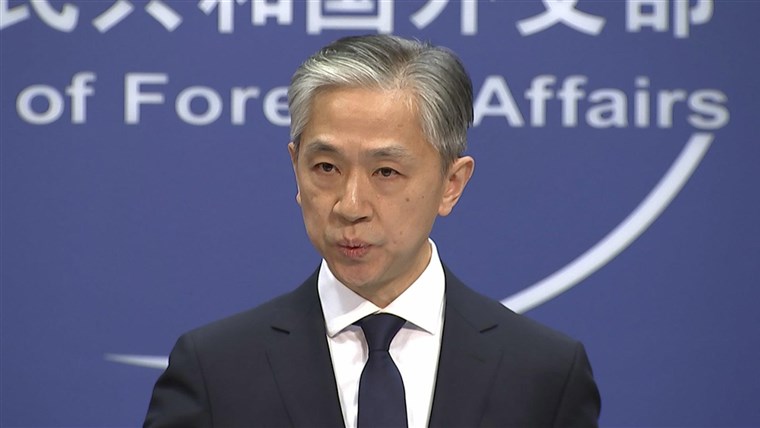
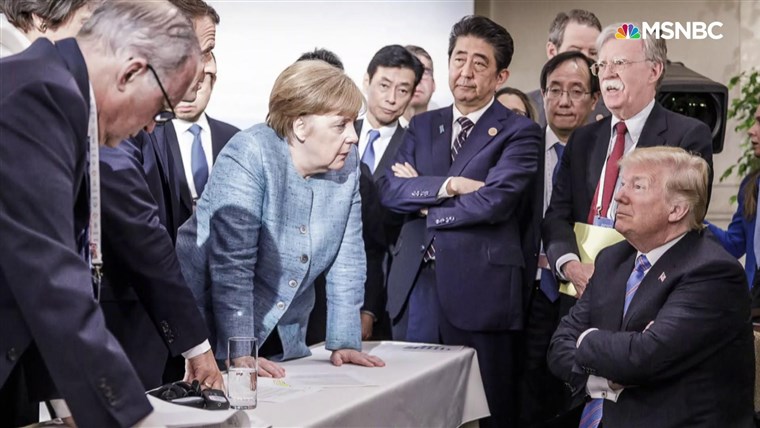

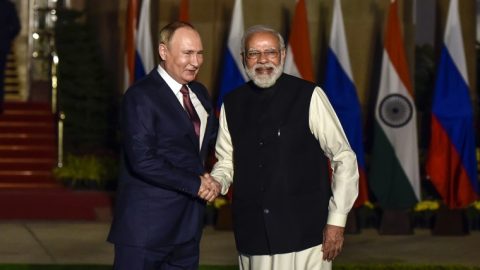
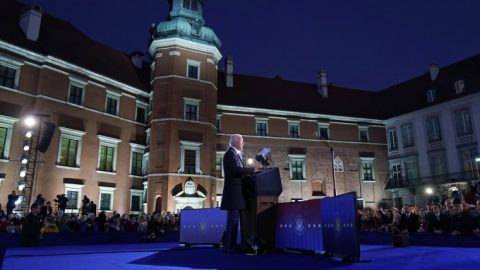


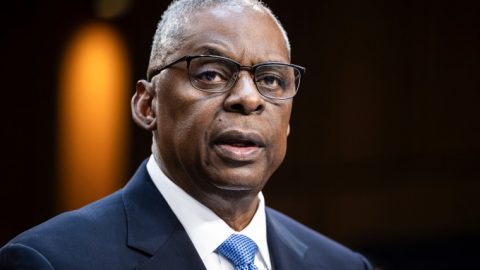

Recent Comments